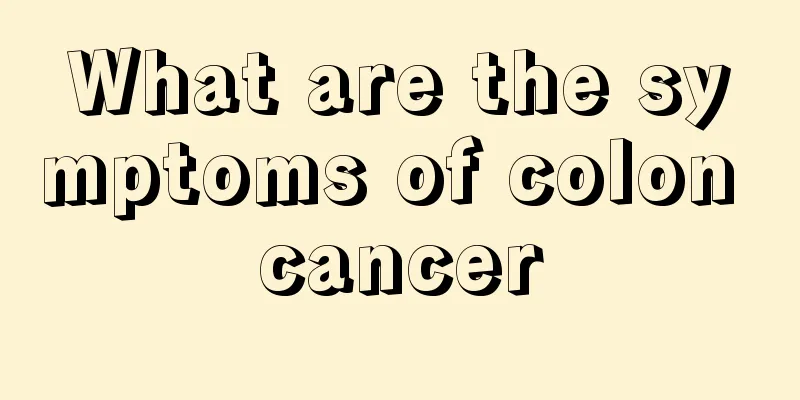The headache when waking up from sleep was caused by this reason

|
In daily life, many people are prone to headaches after waking up from sleep, which will make the whole brain restless and affect normal life. There are many reasons for causing headaches after waking up from sleep. Generally, it is caused by sleeping too long or catching a cold. Stimulation of the brain can also easily lead to headaches after waking up from sleep. Why do I have a headache when I wake up from a nap? No regular nap Some people have no habit of taking naps at all. Suddenly one day they start taking naps. At this time, their own biological clock is destroyed, and biological clock disorder occurs, leading to dizziness and headaches after the nap. Be sure to pay attention to safety and don't stand up and walk around immediately after waking up. Gradually develop the habit of taking naps and form a new biological clock, and this situation will gradually disappear. Sleeping too long If you sleep too long, especially more than two hours, your brain will be over-relaxed. If you wake up suddenly, it will be a stimulation to the brain. Headache is a normal stress response. Therefore, the right nap time is also very important. Head cold during nap Especially in the hot summer, people are very greedy for coolness. During naps, many people like to use fans or air conditioners, or even face the air outlet directly. This will cause a lot of cold air to the head and cause headaches. Therefore, it is recommended that you turn off the air conditioner when taking a nap, do not sleep facing the fan, and do not sleep outdoors. Listen to music during nap Many friends think that listening to music with headphones can avoid external interference. In fact, music is also a kind of noise. This noise has been interfering with the brain's rest. You think you are resting, but in fact your brain is still in an active state. In fact, you have not achieved a good nap effect. Naturally, you are prone to headaches after waking up. Covering your head during nap If you cover your head while sleeping for a long time, the oxygen will be reduced; and your whole body will easily become hot, and the excess heat cannot dissipate, which will affect your head and cause a headache after waking up. What to do if you have a headache after taking a nap Apply a hot compress to your forehead or wash your face with warm water After a nap, you can use a hot towel to apply directly to your forehead, which will help relieve headaches. Apply gentle pressure while applying heat. Washing your face with warm water can clear your mind. Massage the acupuncture points The Baihui point is located in the center of the top of the head, the temples are on both sides of the forehead, and the Lieque point is on the inside of the wrist. You can massage these acupoints to relieve headaches. You can apply some cooling oil when massaging the temples. Simple activities After waking up from a nap, you can go out for a jog, or take a slow walk, or do some simple exercises to keep yourself awake for a few minutes, which is very helpful in relieving headaches. Tea for headache relief Hot salty lemon tea: Cut 1 to 2 slices of fresh lemon, add a little salt and mix with boiling water, then you can drink. Pay attention to nap time Pay attention to the time during your nap. 15 to 30 minutes is most appropriate, and it is best not to exceed an hour. Too long a time may cause headaches. If headaches occur for a long time, you should seek medical attention promptly and receive appropriate medication. Who is not suitable for taking a nap? Taking a nap is not suitable for everyone. Some people pay great attention to resting at night and are not used to taking a nap, which has no effect on health. However, there are three types of people who are not suitable for taking a nap: First, for people over 65 years old or overweight by 20%, taking a nap will increase blood viscosity and easily cause blood vessel blockage; Another type of person is someone with very low blood pressure. During a nap, their blood pressure will be relatively lower, making breathing more difficult. The third type of people are those who have serious blood circulation system disorders, especially those who often feel dizzy due to narrowing of cerebral blood vessels. Because after lunch, the blood in the brain will flow to the stomach, blood pressure will drop, and the oxygen supply to the brain will decrease. If these people take a nap at this time, they are likely to suffer a stroke due to insufficient local blood supply to the brain. In addition, people with insomnia problems should also avoid daytime naps. If you can't take a nap at noon, do other relaxing things, such as listening to music, etc., to keep yourself in a good state of relaxation and better prepare for work and study in the afternoon. |
<<: What causes a slow heart rate?
>>: How to treat raised surgical scars effectively
Recommend
Normal young people's maximum heart rate
The normal heart rate for an adult is 60-100 beat...
The difference between Narcissus, Cinnamon and Dahongpao
Narcissus, cinnamon and Dahongpao are all very fa...
What are the dietary care measures for melanoma
What are the dietary care measures for melanoma? ...
The efficacy of yak horn comb
A yak horn comb is a comb made of ox horn. Combin...
I have severe cough in the late stage of esophageal cancer and I can't eat. What should I do?
If patients with esophageal cancer experience sev...
Cervical cancer chemotherapy and radiotherapy chart
At present, the main treatments for cervical canc...
What to do with viral thrombocytopenia
The treatment of viral thrombocytopenia must be c...
The process of bean sprouts
When promoting healthy eating, growing bean sprou...
Normal value of squamous cell carcinoma antigen: Radioimmunoassay: <1.5μg/L.
The normal value of squamous cell carcinoma antig...
Traditional Chinese medicine treatment and immunotherapy for lung cancer
Most lung cancers originate from the bronchial mu...
Let's pay attention to the diagnostic basis of nasopharyngeal carcinoma as follows
Patients with nasopharyngeal cancer all know that...
Upper gastrointestinal bleeding is one of the common symptoms of advanced cardiac cancer
Usually, cardia cancer occurs in the gastric card...
What's the matter with the swelling and pain inside the cheekbone
The zygomatic bone is the largest bone on our fac...
What is chronic pharyngitis, types and causes of chronic pharyngitis
Chronic pharyngitis is a disease that confuses pa...
What are the symptoms of advanced liver cancer? Four common typical symptoms of advanced liver cancer
Since the early symptoms of liver cancer are not ...









